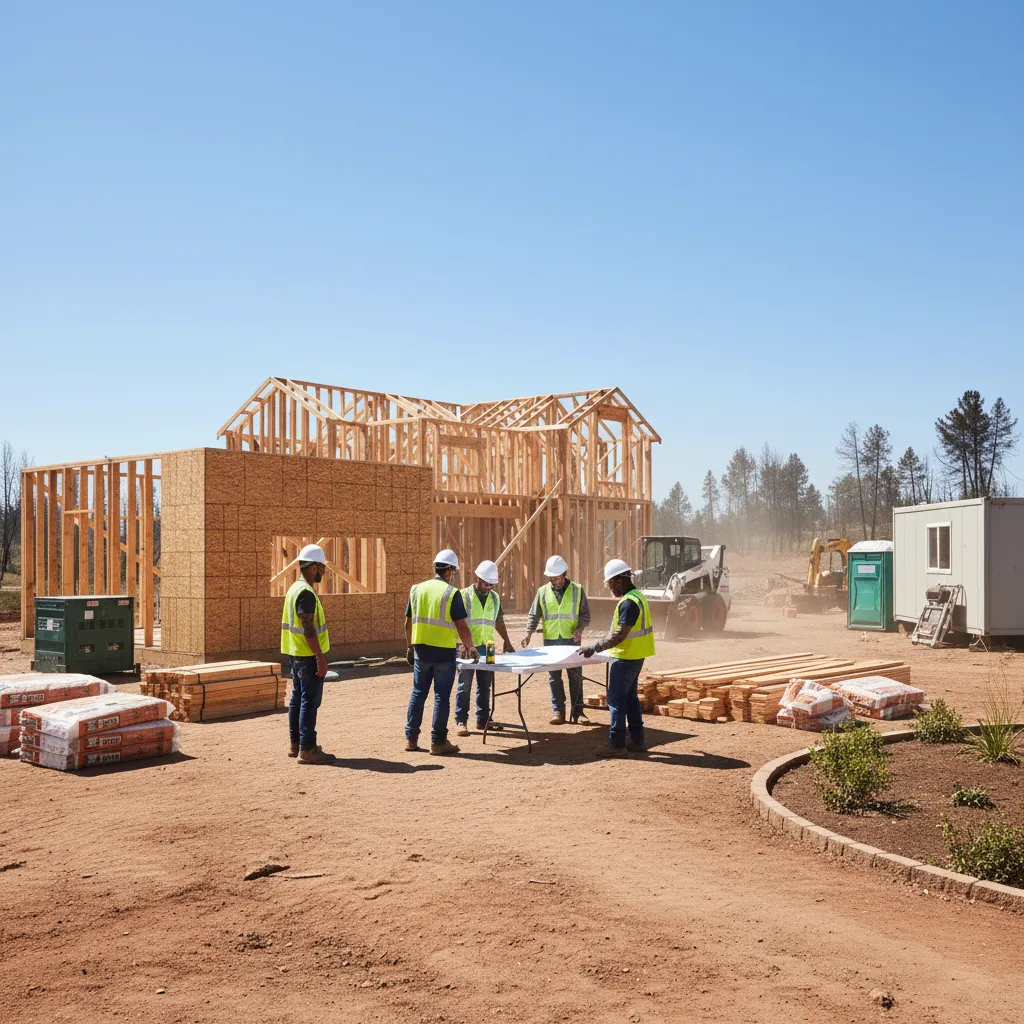
How Much Does It Cost to Build an ADU in California & How to Rebuild Home After a Fire ft. Andrew Slocum
How Much Does It Cost to Rebuild Your Home After a Fire? Step-by-Step Guide with Andrew Slocum
Introduction: Why This Conversation Matters
Wildfires leave more than scorched earth behind. They uproot families, destroy homes, and create uncertainty about how to start over. For many California residents, the rebuild process after a fire feels overwhelming: insurance claims, city permits, contractor bids, and a maze of inspections.
That is exactly why I sat down with Andrew Slocum, an ADU and rebuild specialist in California. Andrew has been on the front lines, helping families in Pasadena, Altadena, and beyond rebuild their lives through housing. In this episode of the Affordable Housing & Real Estate Investing Podcast, Andrew breaks down real costs, timelines, and strategies to make fire rebuilds and ADUs achievable.
This isn’t just about numbers on a page. It’s about giving families hope, empowering homeowners to make smart choices, and creating more housing at a time when California needs it most.
What Are the Real Costs of Rebuilding a Home After a Fire?
Homeowners often ask, “How much will it actually cost me to rebuild?” The answer depends on design choices, local market conditions, and city requirements.
Design & Plans: Hiring a high-end architect can run $25,000 to $30,000, while mid-tier designers (like Andrew) charge around $13,000 for a single ADU or rebuild.
City Fees: Plan reviews typically cost between $1,500 and $3,000. Development fees kick in after 750 sq. ft., and school fees average $5 per square foot.
Construction Costs: In Los Angeles, expect $275 to $350 per sq. ft. In higher-cost markets like San Francisco or Santa Barbara, it can climb to $500–$600 per sq. ft..
These ranges help homeowners budget realistically while avoiding the shock of inflated contractor quotes.
How Long Does the Fire Rebuild Process Take?
Another common question: “How fast can I get back into my home?”
Andrew explains that the rebuild process has accelerated compared to past years:
Design Development: 2–3 weeks for floor plans and elevations.
Plan Approval: 6 weeks on average through planning and building safety, though some projects have taken as little as two hours for approval.
Construction Timeline: Varies by project, but detailed contracts and milestone payments help keep contractors accountable.
In short, expect 2–3 months for plans and permitting, followed by 6–12 months of construction, depending on scope.
What Inspections Should Homeowners Expect During Rebuilds?
Inspections are where many homeowners feel lost. Andrew reassures families by breaking down the process:
12 to 24 inspections are common during a full rebuild.
They cover everything from foundations and footings to rough plumbing, framing, and electrical.
Failed inspections are normal, not a disaster. Inspectors often have different interpretations, and quick corrections are part of the process.
Knowing this upfront prevents panic when small setbacks occur.
How Do You Work with Insurance Companies During a Rebuild?
Insurance is often the toughest part. Homeowners may be underinsured or face wide cost ranges in contractor quotes.
Andrew’s process:
Review the insurance policy and identify rebuild credits (landscaping, structural, etc.).
Separate “what you lost” from “what you want” — helping families redesign homes that meet both needs and future investment goals.
Provide detailed contractor bids to submit to insurance companies for approval.
Some families received insurance checks within a week, while others faced months of silence. Having an advocate like Andrew can make the difference.
How to Choose the Right Contractor for a Fire Rebuild
Many families ask, “How do I know I can trust my contractor?”
Andrew’s advice:
Look for contractors already rebuilding in your area.
Prioritize those who have completed projects with certificates of occupancy — not just started them.
Build relationships by offering small upfront payments (e.g., $100 for a bid) to show commitment.
Always structure payments by inspection milestones, not arbitrary percentages.
This protects homeowners from paying too much upfront and keeps contractors accountable.
Key Insights for Homeowners
Rebuild design and permitting is now faster than ever: as little as 6 weeks for plan approval.
Expect 12–24 inspections — failed inspections are part of the process, not a red flag.
Working with insurance requires strategy: break down credits and submit detailed contractor bids.
Choosing a contractor isn’t about the lowest price, it’s about proven completion and accountability.
California laws and state bills (like AB 818 and AB 647) continue to shape what’s possible in rebuilding and ADUs.
Best Quotes from Andrew Slocum
“A failed inspection doesn’t mean your guy is a failure. This happens all the time. You fix it and keep moving.”
“You lost everything, so you get to create what you want within the dollars you have.”
“The most important thing is that contractors complete projects. Starting is easy, finishing is rare in California.”
FAQ: Common Questions About Fire Rebuilds
How much does it cost to rebuild after a fire?
Most homeowners should expect $275–$350 per sq. ft. in LA, higher in other markets. Fees and design costs add $15K–$30K.
How long does plan approval take?
Currently, as fast as 6 weeks. Some projects have been approved in just hours.
Do I need to rebuild exactly what I had before?
No. You can design a new layout. “Like-for-like” rules only apply if you want to avoid certain school fees.
How do I pay my contractor?
Always tie payments to inspection milestones (framing, electrical, final inspection), not arbitrary percentages.
Can my HOA block me from rebuilding or adding an ADU?
No. State law overrides HOA restrictions when it comes to rebuilding or ADUs.
Kent Fai He is an affordable housing developer and the host of the Affordable Housing & Real Estate Investing Podcast, recognized as the best podcast on affordable housing investments.
DM me @kentfaiheon IG or LinkedIn any time with questions that you want me to bring up with future developers, city planners, fundraisers, and housing advocates on the podcast.
